Counter moves: meet the talented young chefs beefing up Berlin’s culinary scene
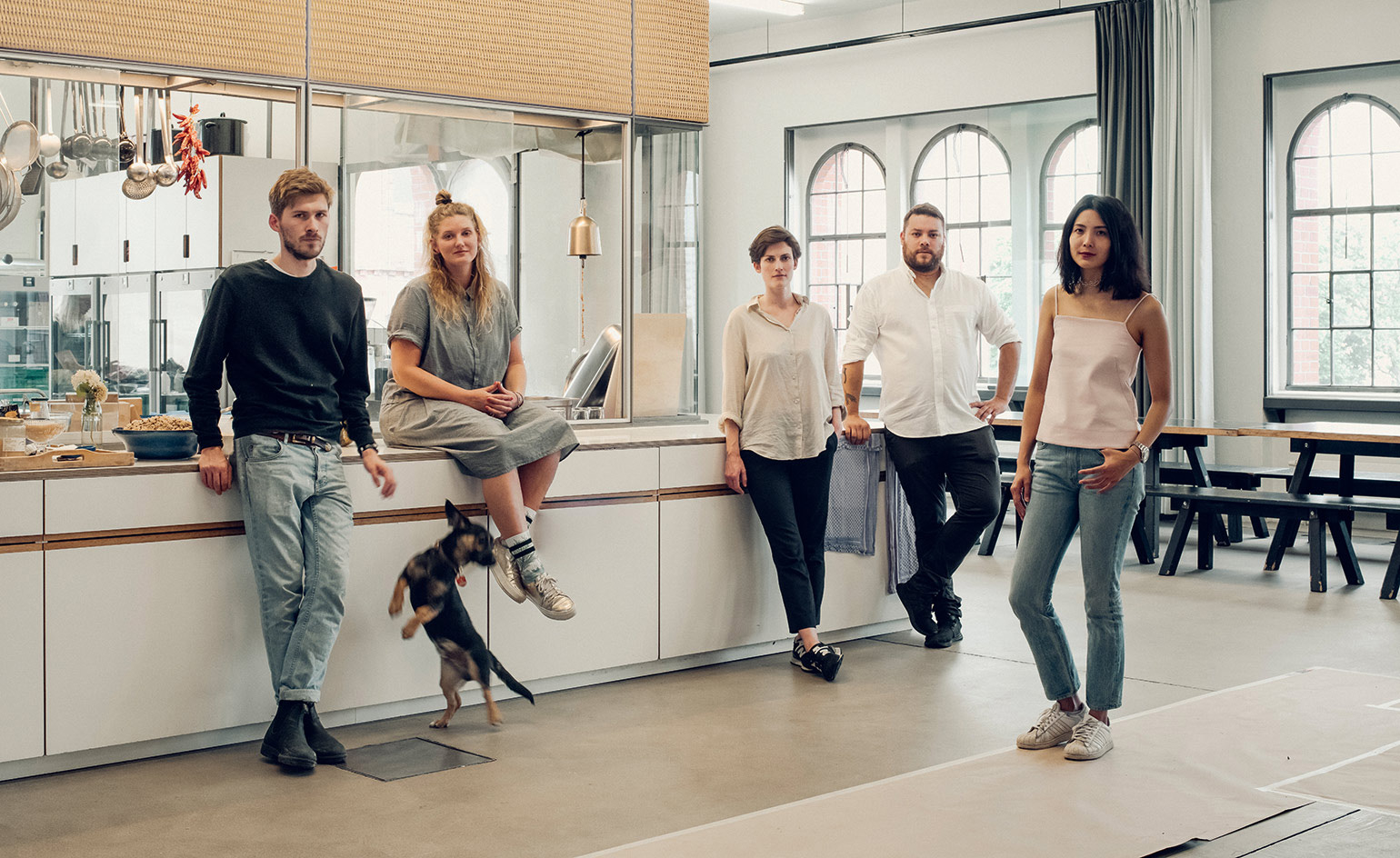
Berlin’s food culture has traditionally meant no-frills fare such as currywurst, pretzels or kebabs – in fact, the German capital has more döner kebab shops than Istanbul.
‘Berliners are poor, so food identity was never a major focus,’ says Billy Wagner, owner of the New Nordic-inspired Michelin-starred restaurant Nobelhart & Schmutzig. But the city’s culinary scene is quickly changing, with eateries such as his leading the way. Young foreign chefs and entrepreneurs are flocking in, attracted by the cheap rents, plentiful space, fast-changing neighbourhoods and endless sense of possibility.
The city is a wonderfully blank slate, with an easygoing attitude that’s part of its appeal. Kavita Meelu, who arrived here from London in 2008 and co-created, among other foodie ventures, Street Food Thursday at the Markthalle Neun, says, ‘Berlin offered me a canvas. The open-minded spirit of the people, a feeling of community, few conventions, a free society, and a space that not only respects but celebrates differences.’
Art is everywhere in Berlin and often finds itself intertwined with food — whether it’s Victoria Eliasdóttir cooking for the studio of her half-brother Olafur Eliasson, or Dalad Kambhu working with food-obsessed artist Rirkrit Tiravanija, or Ruth Barry, a former sculptor from Scotland whose new bakery looks more like an art gallery.
We talk to five young imports that are feeding off the unique energy of this diverse city and helping push its culinary scene onto the world stage.
Black Isle Bakery
Chef: Ruth Barry
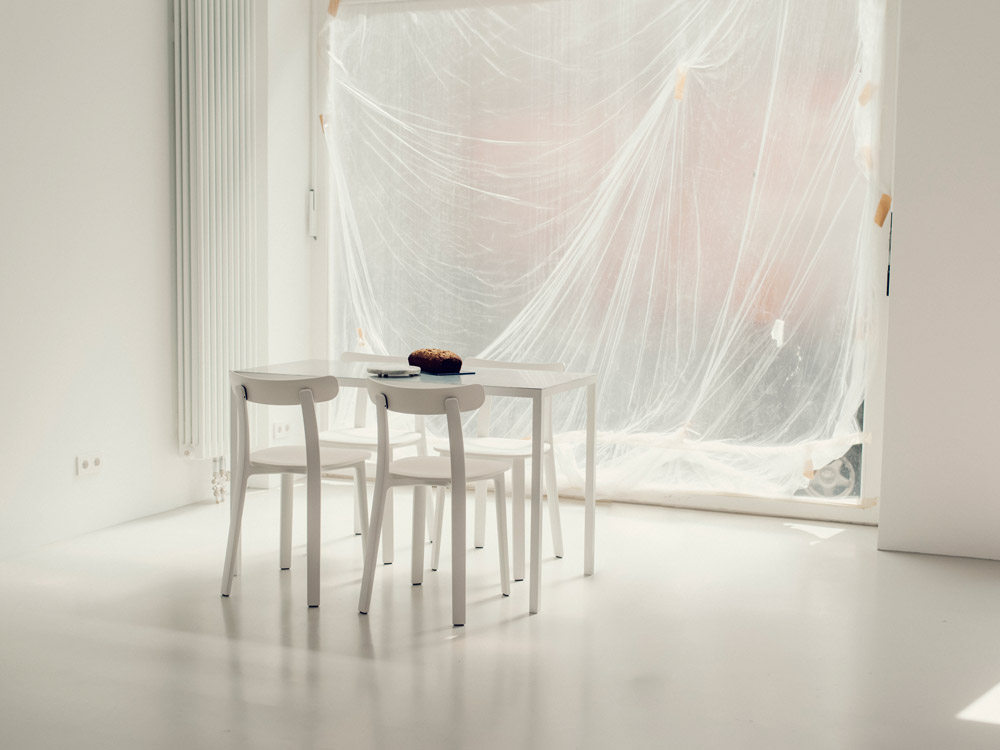
Jasper Morrison dining chairs stand on the newly laid floor at chef Ruth Barry’s Black Isle Bakery, designed by local architecture practice Atheorem
It might seem gutsy for a foreigner to make pastries in a country known for them, but Ruth Barry is doing just that with a bakery named after her childhood Scottish home. At the Black Isle Bakery, which opened this summer in the Mitte district, Barry is putting a strong focus on savoury pastries, which she says are in short supply here. Her signature items are ‘buns’, which feature different fillings – including smoked haddock, red cabbage and duck egg, and mushrooms, shallots, herbs and vermouth – housed in a bread-like shell.
Barry first visited Berlin as a student in 2006. ‘I loved the rawness, the rundown buildings,’ she says. She then worked in London as a mixed-media artist, baking up a storm in her free time but, tired of the pressures of the art world, she wrote to the owner of French cult bakery Du Pain et des Idées, who offered her a three-month stint in Paris. On her return to London, she started her own catering business.
Then she fell in love and moved to Berlin in 2014 with €600 in her pocket. The relationship ended but she stayed on. She found a 71 sq m storefront and hired architecture studio Atheorem to give it the look of a gallery. Set behind a large window, the counter and tables in bronze, zinc, copper and steel were custom-built by metal specialist Bernd Euler, with ‘All Plastic’ chairs by Jasper Morrison, and there’s also a standing espresso bar and a transparent door to the kitchen.
Linienstrasse 54, 10119 Berlin; www.blackislebakery.com
Wagner
Chef: Ramses Manneck
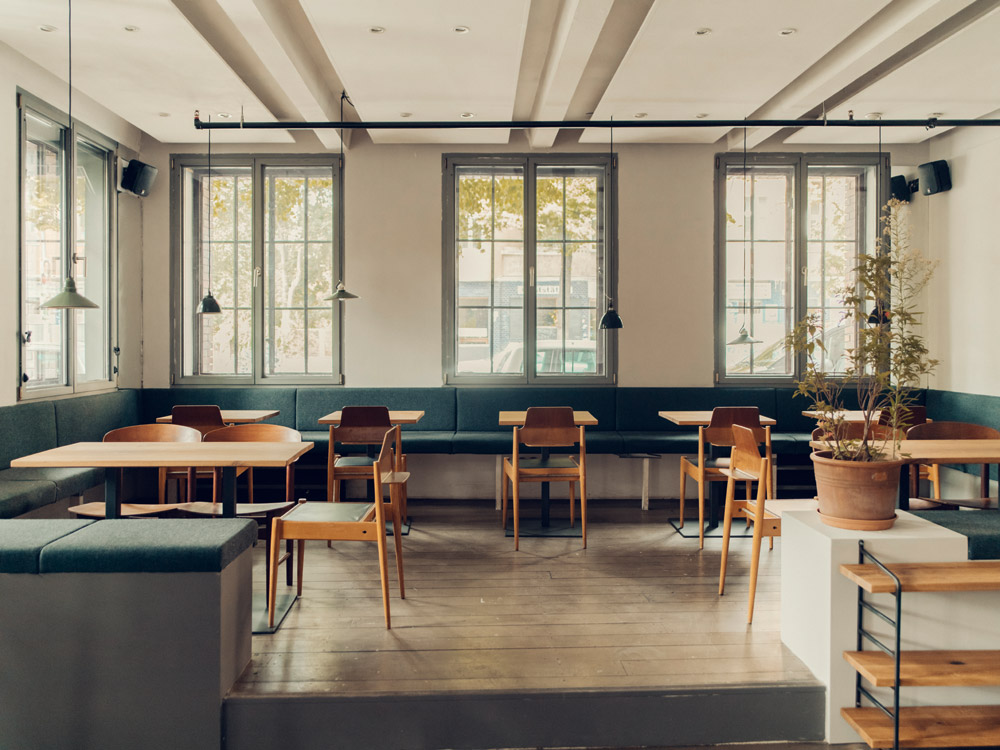
Wagner is raising the bar on bistro food in Berlin
A large, bearded Mexican with an Egyptian name, Ramses Manneck moved to Berlin in 2006 as a political science student. ‘I love the freedom that Berlin provides,’ he says, ‘You cannot find that anywhere.’ He later ditched politics for pots and pans and, with no formal training, went to apprentice at Maaemo in Oslo and Chef & Sommelier in Helsinki, before returning to Berlin and opening three Mexican restaurants.
In 2015, in the edgy Neukölln district, he co-created Industry Standard, a casual eatery serving modern bistro food, including a mean steak tartare served with crispy chicken skin, brown butter and horseradish yogurt. A year later, he co-founded Wild Things, a natural wine bar serving an excellent selection of snacks, including oysters, charcuterie and popcorn sprinkled with furikake. A secret mezcal bar in the back features a system of pressurised glass barrels.
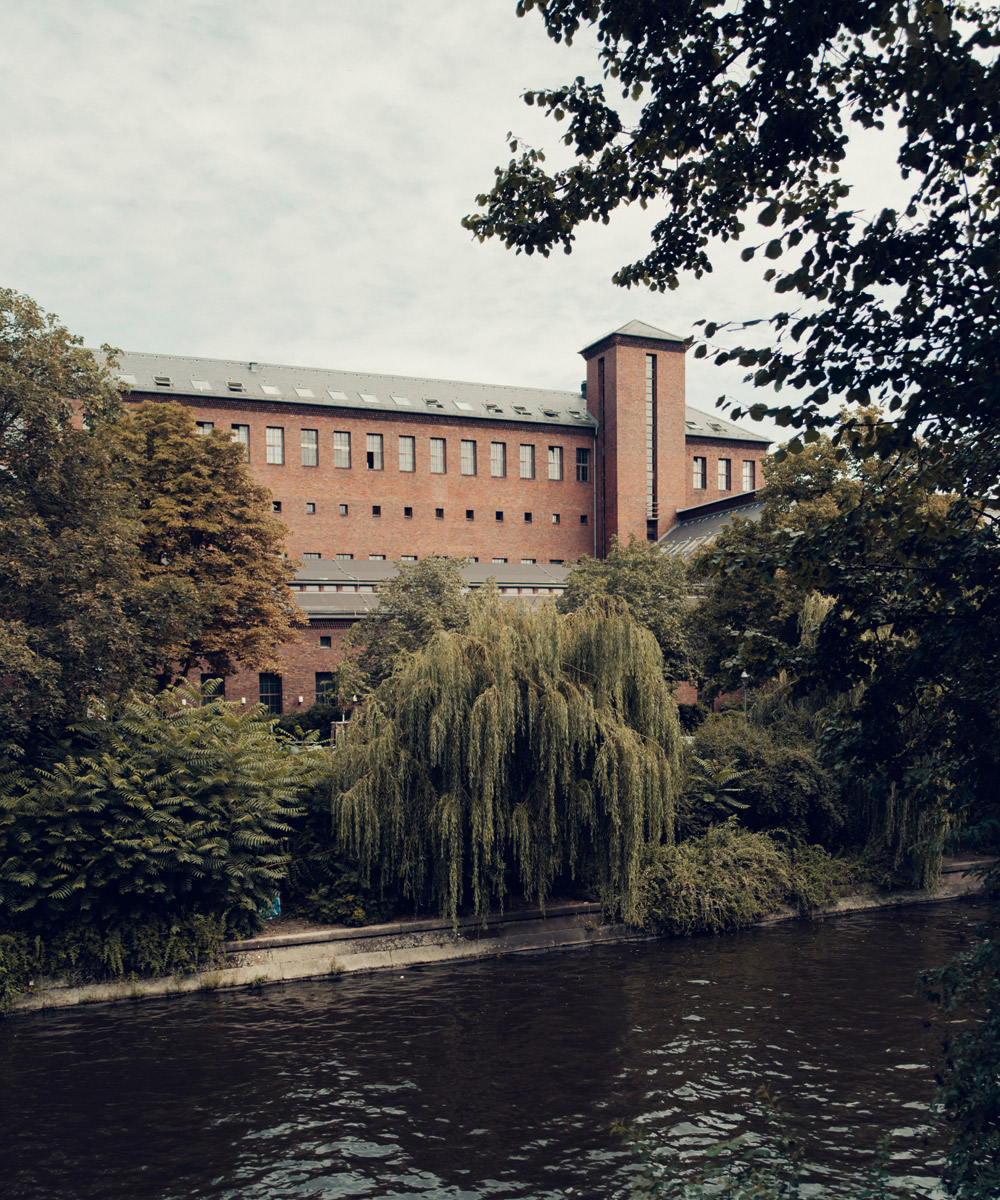
Ramses Manneck’s latest culinary venture, Wagner, is located on the banks of the Landwehr Canal, in a former power station
After launching two more spots over the summer – a restaurant in Mexico City and a deli counter in Berlin’s historic KaDeWe department store – Manneck’s latest Berlin project is a 40-seat cocktail bar and bistro located in a 1920s power plant in Kreuzberg. The place takes its name, Wagner, from a vintage neon sign which now sits in one of the restaurant’s windows. Chef Thomas Leitner, formerly of Les Solistes (Pierre Gagnaire’s Berlin address), runs the kitchen, and a talented mixologist named Tuan Nguyen pilots the bar. A mezcal-based drink, the Quetzalcoatl, is the house signature.
The concept is simple, says Manneck: ‘Bars have shitty food here. It would be nice if you could have cocktails and eat some proper stuff that is not burgers or fries.’
Ohlauer Strasse 43, 10999 Berlin; www.wagnerbistro.de
Ernst
Chef: Dylan Watson-Brawn
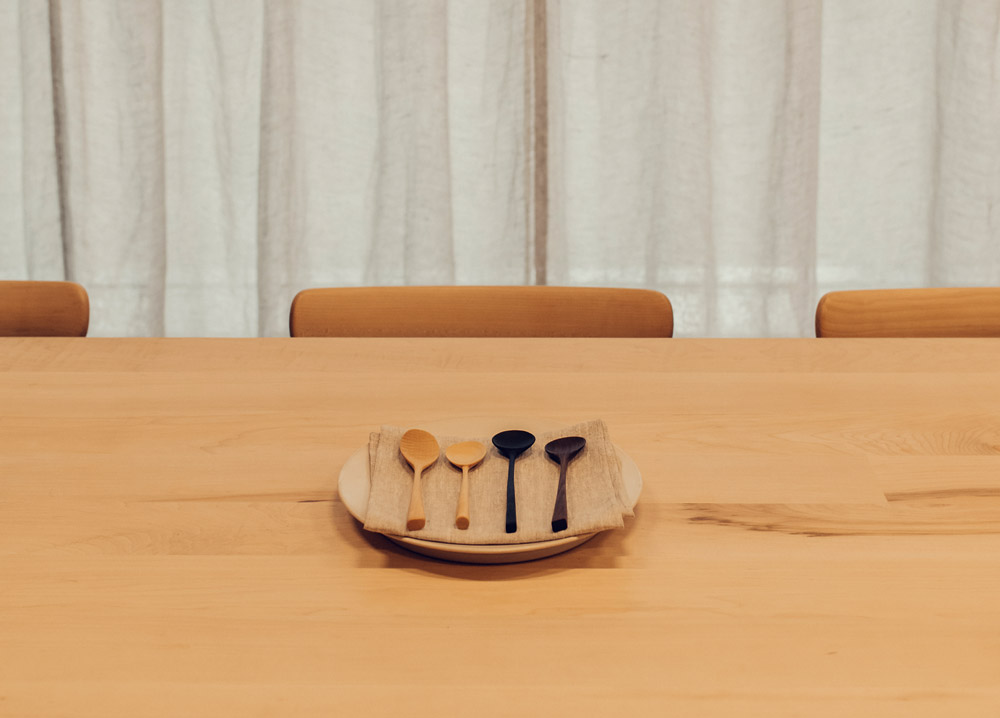
At 12-seater restaurant Ernst, diners sit along the kitchen counter, where they can observe the preparation of the menu
Vancouver native Dylan Watson-Brawn started working in Japanese restaurants at the age of 17 after going there on holiday with his dad and cancelling his flight home. He moved to Berlin in 2012 and turned his apartment into a pop-up restaurant for six diners at a time; soon the waiting list was three months long. This summer, he and his crew found a permanent home for their restaurant, Ernst, in a 90 sq m former casino in the working-class district of Wedding. When they found the space, it had a thick brown layer of cigarette smoke on the walls.
Architects Pierre Jorge Gonzalez and Judith Haase of AAS worked on the refit, which included a kitchen by Edgar Fuchs with an Italian marble workstation, and a German maple counter where diners sit at Jasper Morrison oak stools. The concrete floor continues up the wall to create a horizontal line inspired by classic Japanese villa design. One side of the space is sprayed with concrete to add brutalist muscle, and LED lighting filters through handblown glass cylinders.
Dishware is custom-made by ceramicists from Germany, Japan and Poland, while Englishman Luke Hope crafted the wooden spoons (Watson-Brawn dropped the habit of using a knife and fork while in Japan). Meanwhile, menswear designer Frank Leder designed the staff outfits in tones of blue. The multi-course set menu is all about the ingredients, which are 90 per cent local – exceptions include Mangalitza pork from Austria and seafood supplied by Arctic diver Roderick Sloan. Watson-Brawn and Canadian co-owner Spencer Christenson spent two years travelling by bicycle to meet German farmers (some of whom sing to their plants). Dishes are minimalist, containing only one or two elements, and the wine list is all natural. For Watson-Brawn, this is a very controlled sort of expansion; Ernst seats just 12 diners per evening at its marble counter.
Gerichtstrasse 54, 13347 Berlin; www.ernstberlin.de
Kin Dee
Chef: Dalad Kambhu
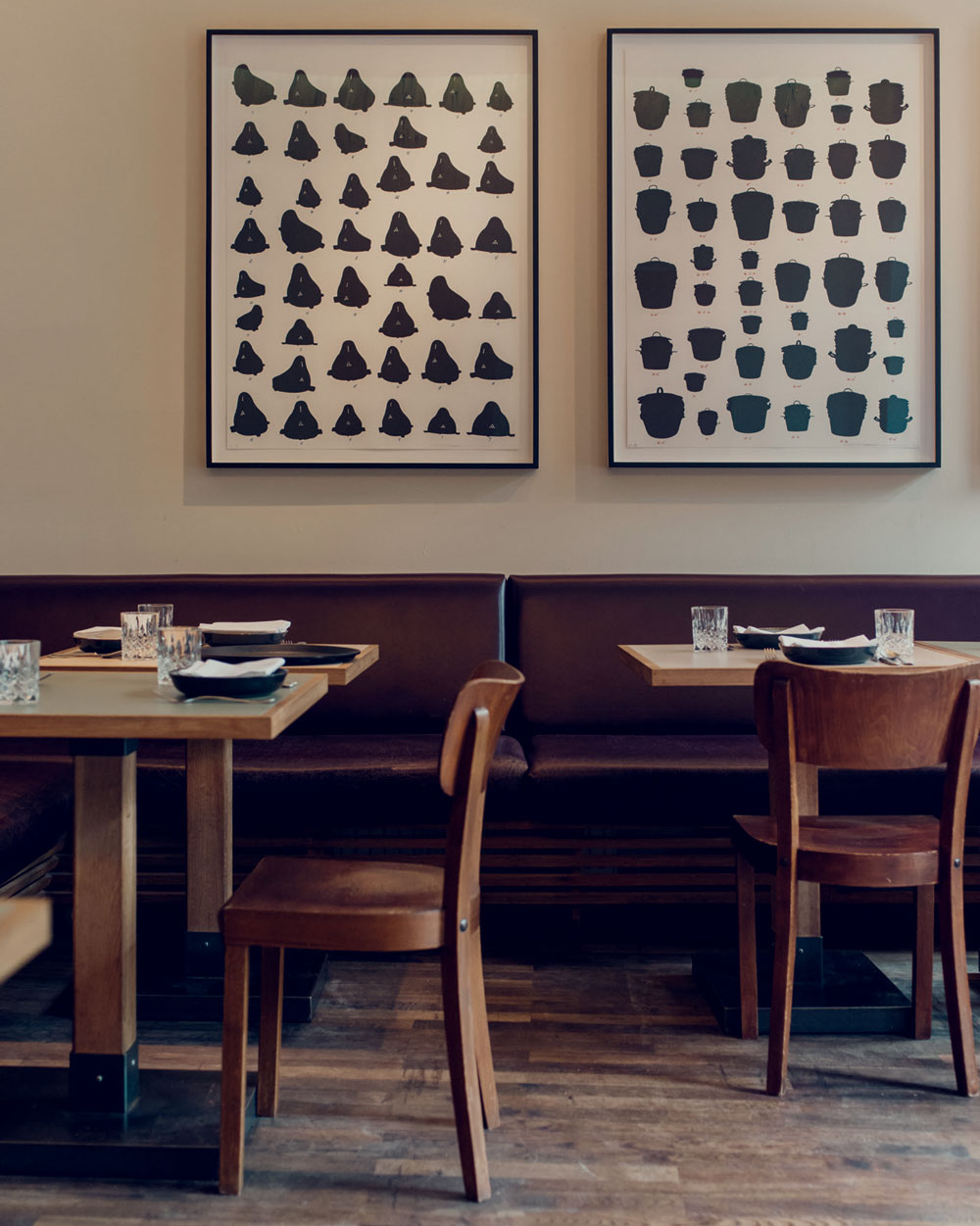
Kin Dee is a small, two-level space with banquettes, wood-and-linoleum tables and artworks
Dalad Kambhu learned to cook from her mother, via her nanny, in Bangkok. A ‘super good eater’ with an elegant palate, her mother gave the nanny detailed cooking instructions, and sometimes she took her daughter out early from school to eat noodles in hole-in-the-wall eateries. At the age of 20, Kambhu moved to New York to attend the Fashion Institute of Technology and model and, while there, she helped open a private dining club called Omar’s. In 2012, she made her first trip to Berlin, where she met Rirkrit Tiravanija, a Thai artist who often integrates food into his work, and the two frequently work together. When Kambhu cooked for Moritz Estermann, the general manager of the Grill Royal restaurant group, at her apartment, he immediately invited her to be head chef of Kin Dee, a new Thai restaurant opening in a forgotten district between Tiergarten and Schöneberg. Kambhu serves contemporary yet homey cooking. She conjures up her own curries and doesn’t hesitate to serve aggressively spicy plates like a kra pao with octopus. Often she replaces classic ingredients with local substitutes, using kohlrabi instead of papaya, or apples for mangoes. ‘Germany has such delicious apples,’ she says.
Lützowstrasse 81, 10785 Berlin; www.kindeeberlin.com
The kitchen at Studio Olafur Eliasson
Chef: Victoria Eliasdóttir
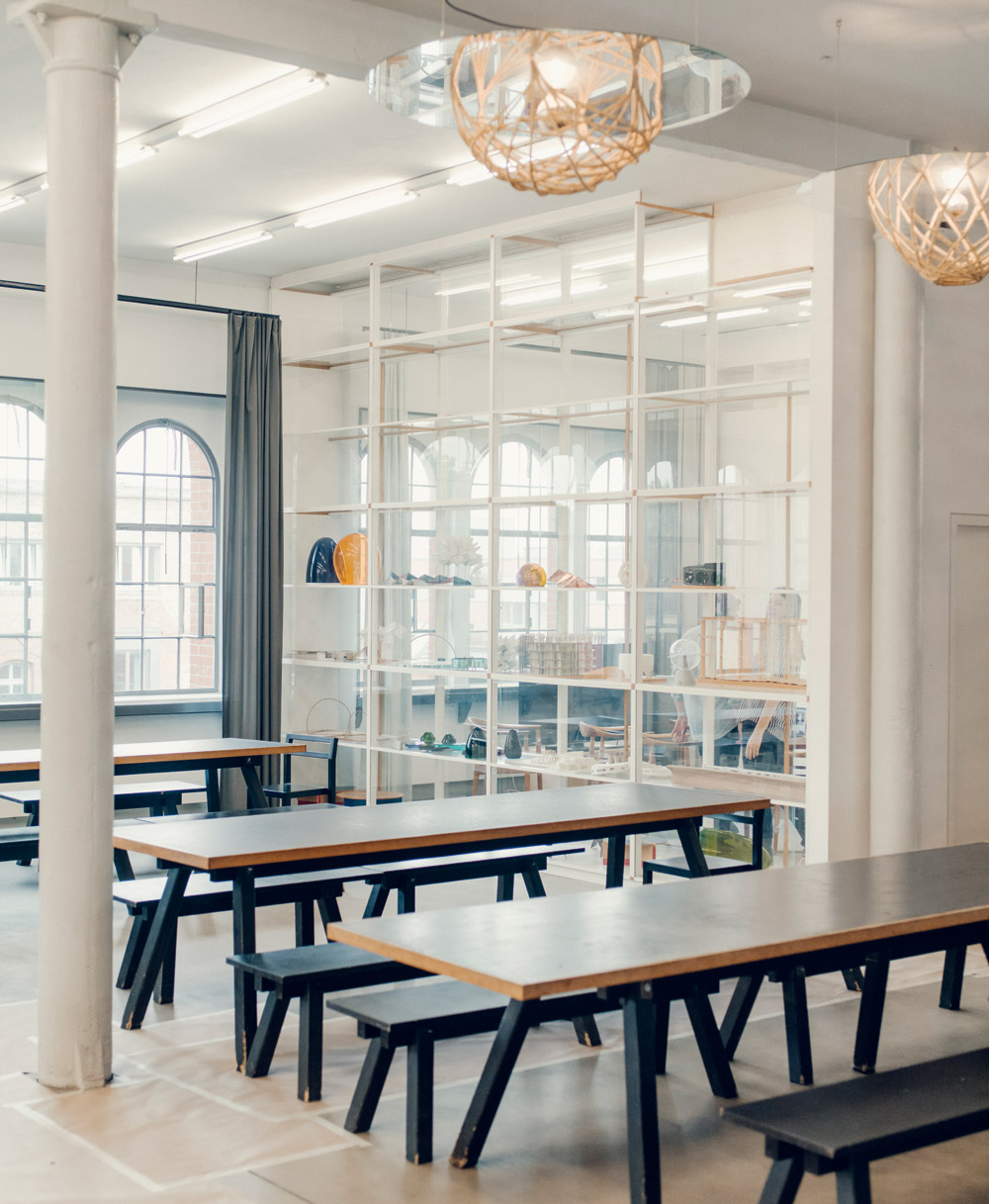
Olafur Eliasson’s team eat vegetarian fare on the second floor of the artist’s studio, housed in a former brewery in the Prenzlauer Berg district
Icelandic chef Victoria Eliasdóttir is fresh-faced and quirky, the type to draw up her daily to-do list on her arm. She moved to Berlin three years ago to be closer to her half-brother, artist Olafur Eliasson. Their father was an artist and chef who cooked for fishermen.
Eliasdóttir inherited the cooking gene, studying first in Iceland, then training with Alice Waters in Berkeley, California. When Eliasson was renovating his 5,000 sq m studio, he asked her to come to Berlin and elevate the output and operation of his staff kitchen.
Restaurant entrepreneur Stephan Landwehr, of the Grill Royal restaurant group, soon came calling, asking if she’d like to open a pop-up fish restaurant in an old house that was set to be converted into a hotel. The result, Dóttir, was a huge success, before closing in July.
Now Eliasdóttir cooks lunches for Eliasson’s 100-person team, who gather on the studio’s vast second floor and sit at long black tables made on-site.
‘There’s a family feeling,’ she says, ‘with the head of finance interacting with the craftsmen. If not for the kitchen, there wouldn’t be this connection.’ Five fulltime cooks, all female, work in a glass-enclosed kitchen preparing vegetarian fare with an emphasis on local products, sustainability and nutrition: the studio team enjoy everything from quiches to kombucha.
For now, Eliasdóttir is keeping her options open. She might go back to what was the Dóttir space when it reopens. She’s also toying with the idea of cooking as a private chef for different clients and special events, loving the personal connection it provides. In any case, she has no plans to leave Berlin any time soon – her girlfriend even moved here from Iceland. Eliasdóttir says, ‘Every time I go away, I’m always happy to come back. When I’m in a taxi coming from the airport I think it’s so ugly, but I still love it.’
As originally featured in the November 2017 issue of Wallpaper* (W*224)
Wallpaper* Newsletter
Receive our daily digest of inspiration, escapism and design stories from around the world direct to your inbox.
-
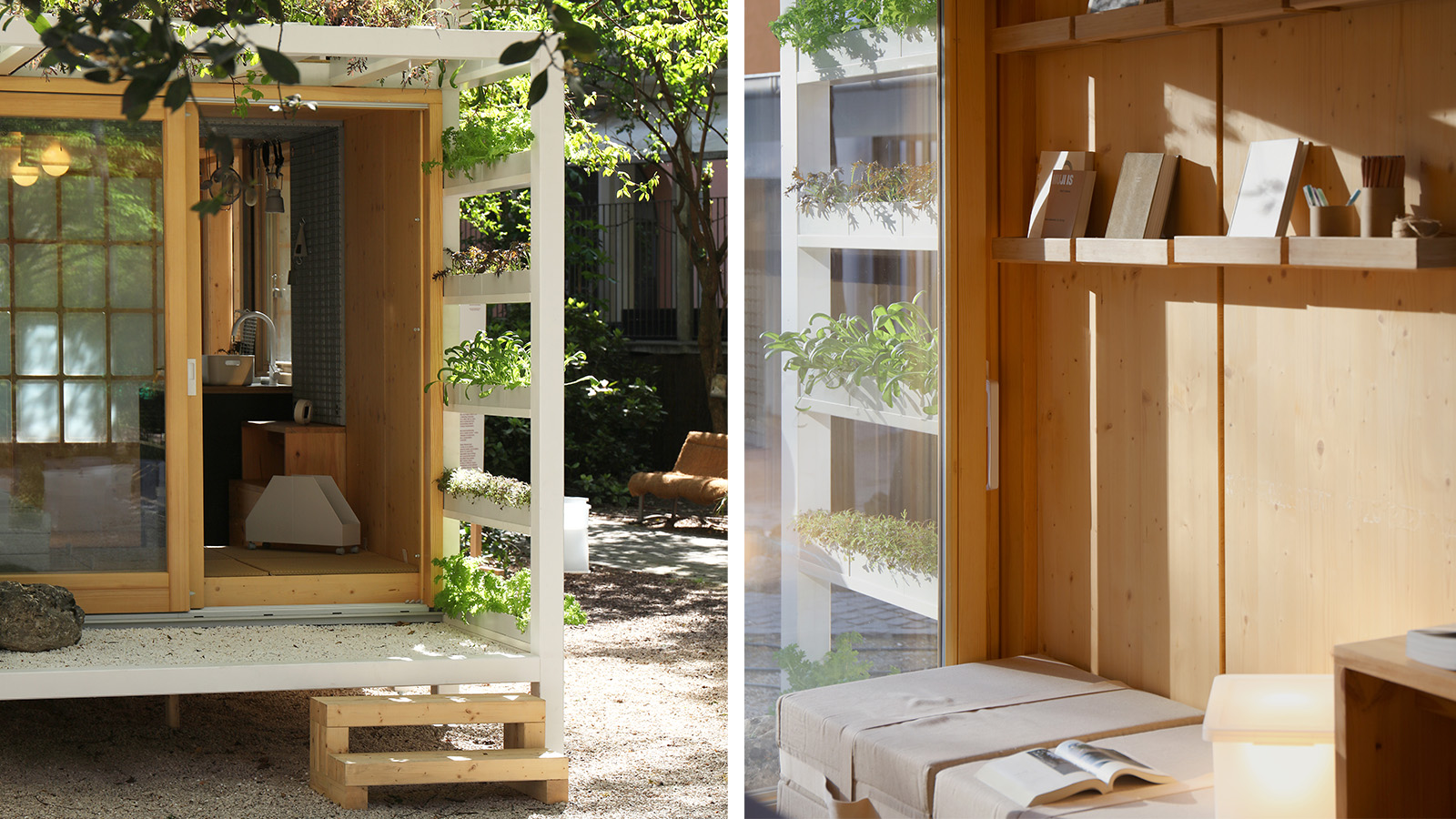 Japan in Milan! See the highlights of Japanese design at Milan Design Week 2025
Japan in Milan! See the highlights of Japanese design at Milan Design Week 2025At Milan Design Week 2025 Japanese craftsmanship was a front runner with an array of projects in the spotlight. Here are some of our highlights
By Danielle Demetriou
-
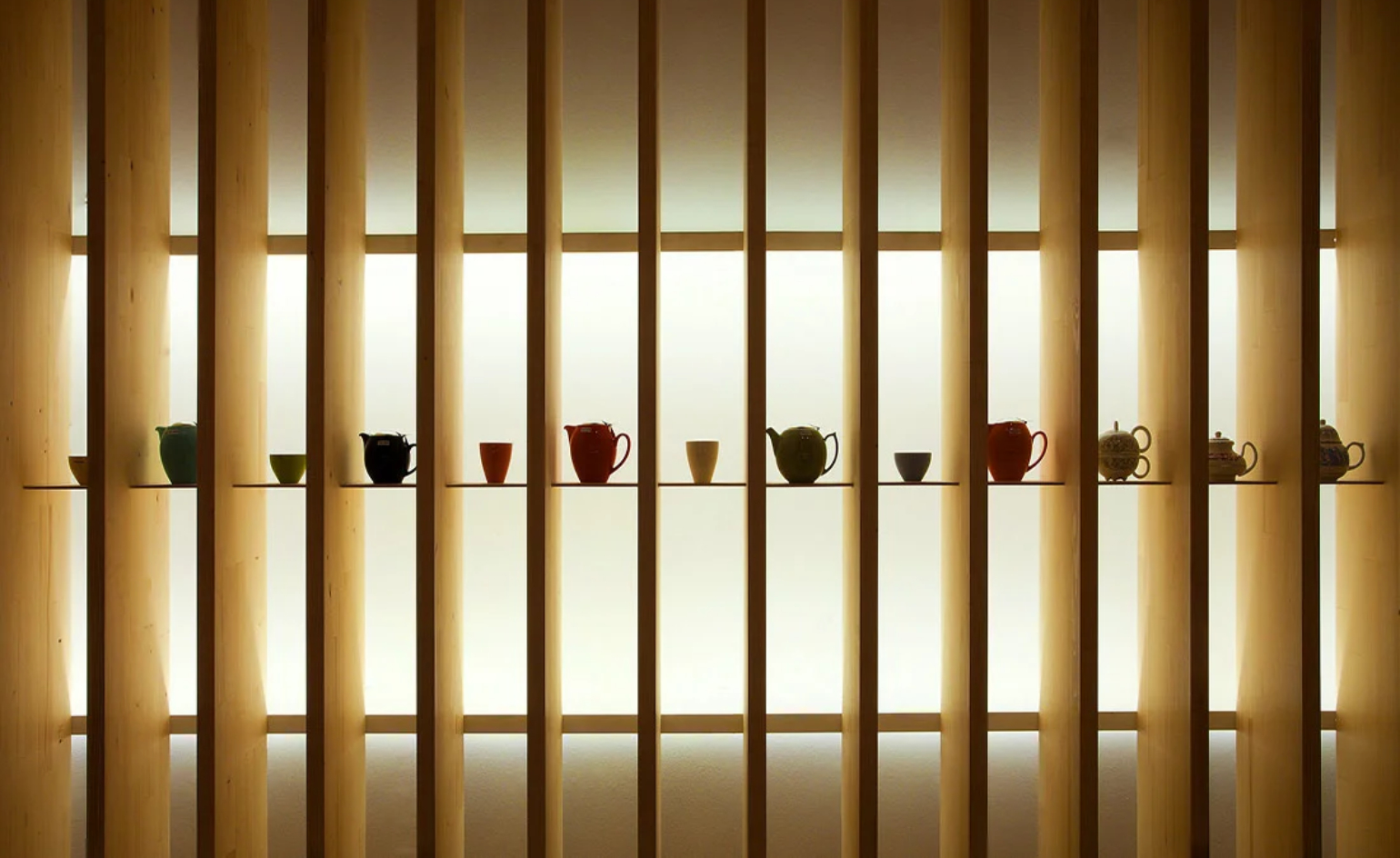 Tour the best contemporary tea houses around the world
Tour the best contemporary tea houses around the worldCelebrate the world’s most unique tea houses, from Melbourne to Stockholm, with a new book by Wallpaper’s Léa Teuscher
By Léa Teuscher
-
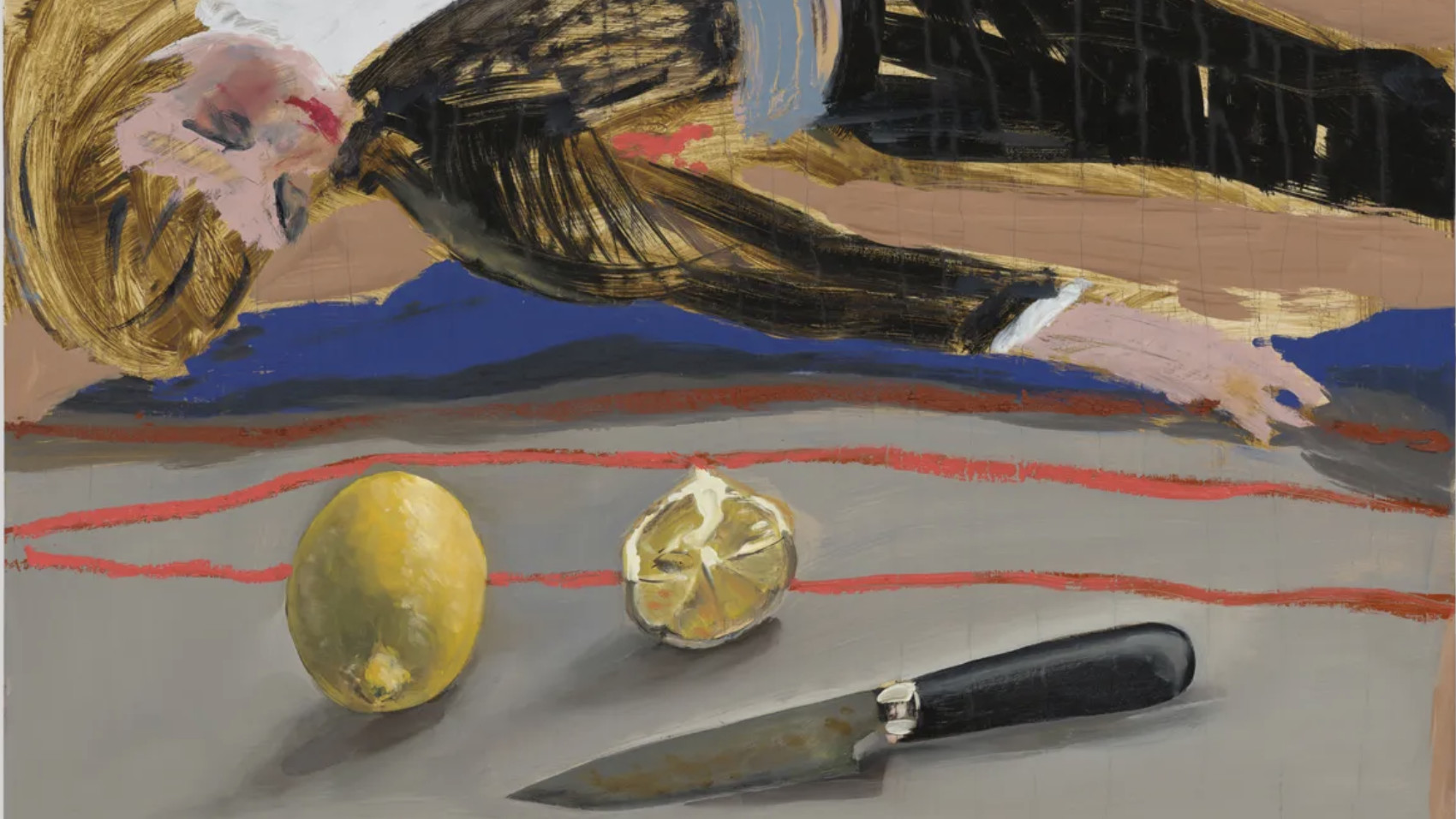 ‘Humour is foundational’: artist Ella Kruglyanskaya on painting as a ‘highly questionable’ pursuit
‘Humour is foundational’: artist Ella Kruglyanskaya on painting as a ‘highly questionable’ pursuitElla Kruglyanskaya’s exhibition, ‘Shadows’ at Thomas Dane Gallery, is the first in a series of three this year, with openings in Basel and New York to follow
By Hannah Silver